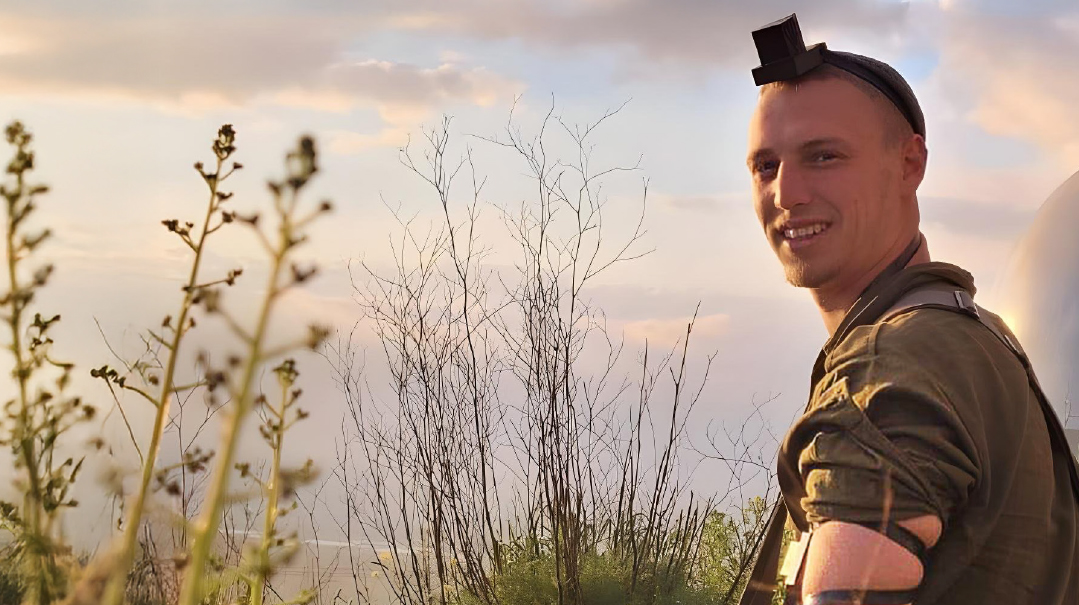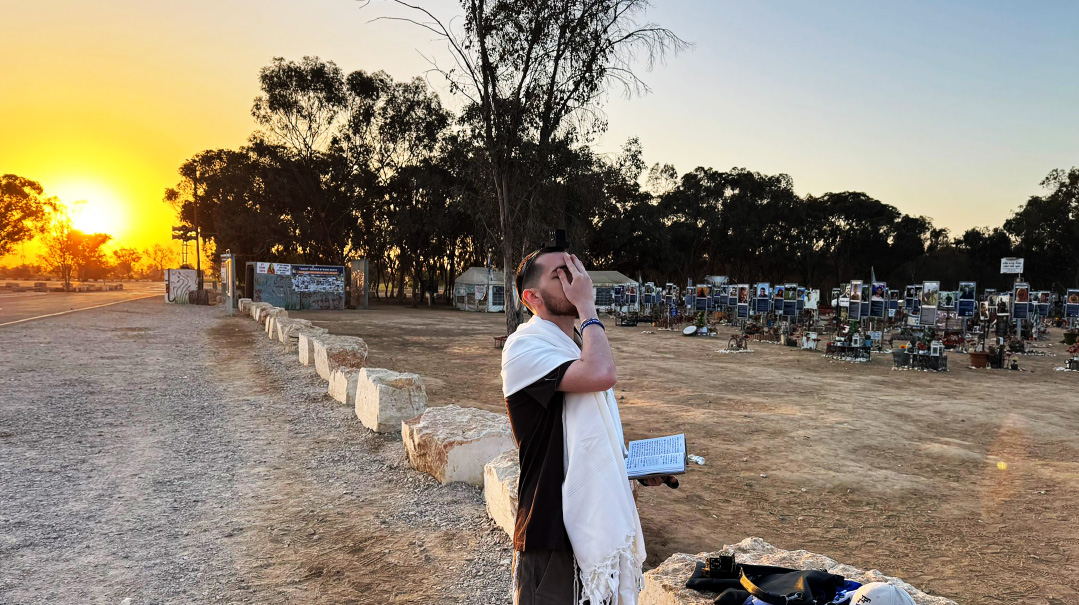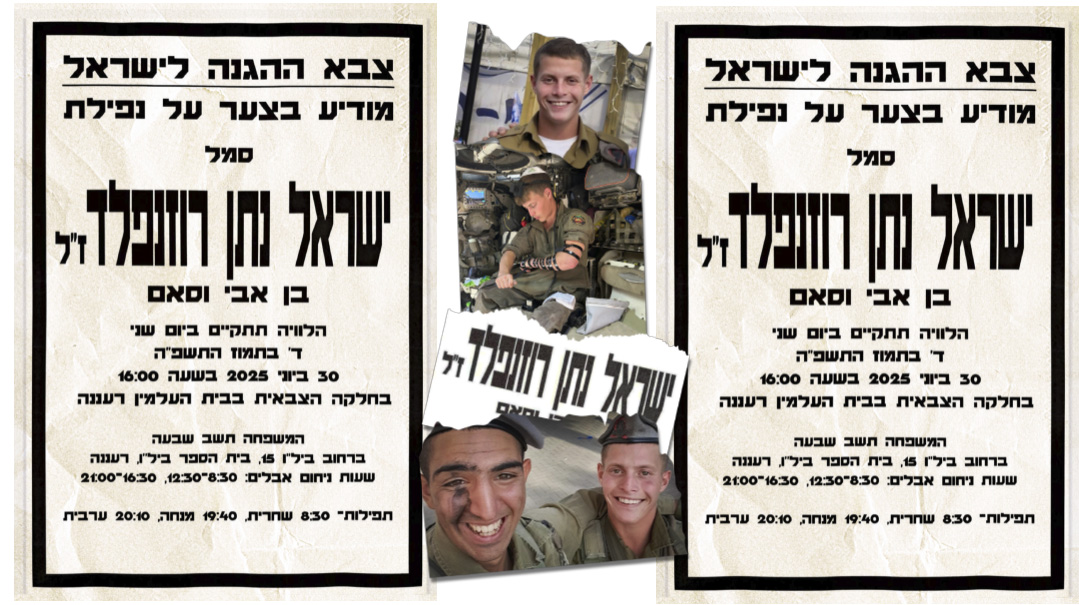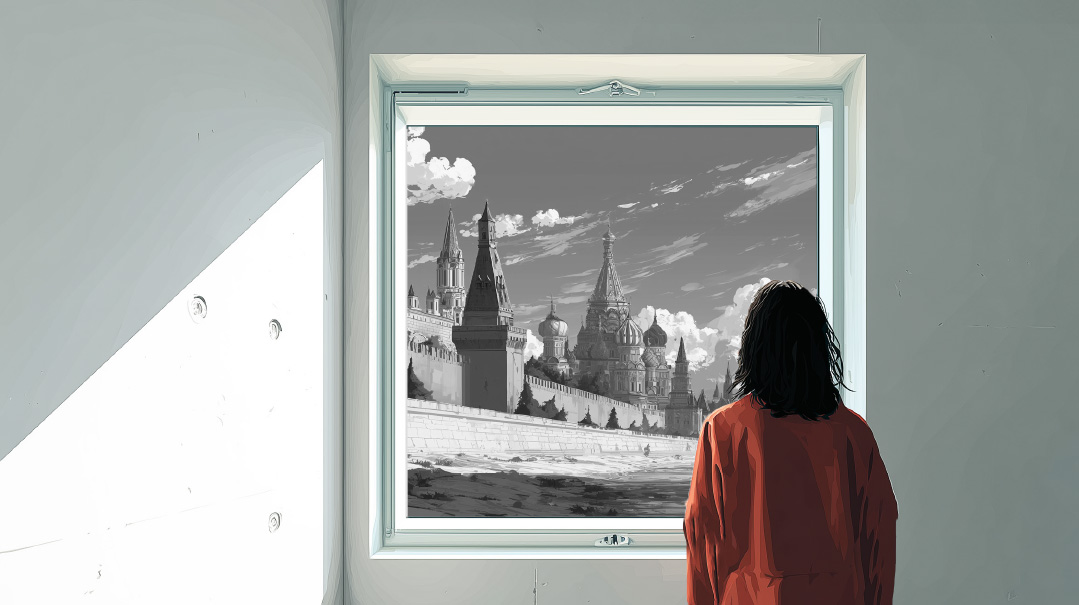Bring Her Home

Since October 7, Karina Ariev has been held hostage in Gaza. Her father and sister share their story
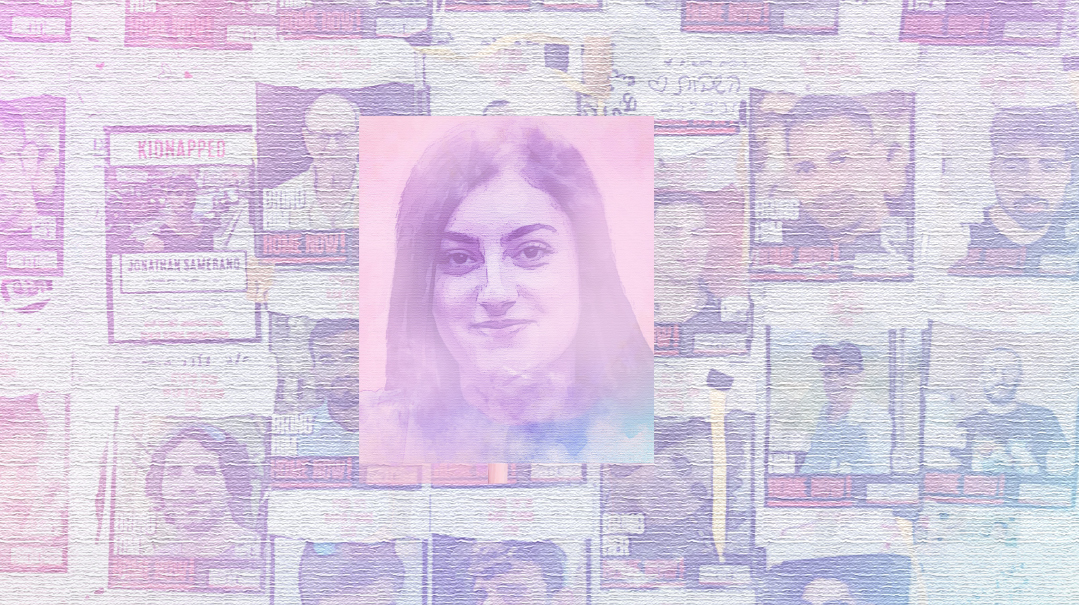
When 19-year-old Karina Ariev was kidnapped from Kibbutz Nahal Oz by Hamas terrorists on the morning of October 7th, her family’s lives stopped. Here, Karina’s father and sister share a window into their painful reality as they await Karina’s return — and beg Family First readers, “Please, help bring her back home.”
“I was in bed, it was around 7:00 a.m., when Karina called me,” says Sasha Ariev. The call from her little sister had awakened her from her sleep, early on that morning of October 7.
“I could tell from her voice that something was very wrong,” Sasha continues. “She sounded terrified, and I could hear booms and sirens in the background. She said she and the girls she was with had woken up from the tzeva adom alerts and dashed to the migunit, the concrete bomb shelter, on the kibbutz, still in their pajamas. Then they heard the sounds of shooting and shouting in Arabic and realized this wasn’t a regular rocket attack but also a terrorist infiltration. Once she heard the terrorists, she got off the phone so that the terrorists wouldn’t detect them hiding in the migunit, and we switched to communicating via WhatsApp messages.”
As the terrorists got closer to the migunit, the tone of the conversation turned from fearful to somber. Karina messaged her sister, “I love you. If anything happens to me, look after our parents. And don’t stop living your lives.”
“I realized this was a goodbye conversation,” Sasha says.
The Arievs — parents Albert and Ira and their 24-year-old daughter Sasha — last heard from 19-year-old Karina at 7:40 a.m. on October 7. Since then — since that terrible day when she was kidnapped from Kibbutz Nahal Oz by Hamas terrorists — nothing.
I meet Albert and Sasha in the family’s cozy Pisgat Ze’ev home. It’s the end of January, over three and a half months since the attack, but for the Arievs, and the families of the other 136 hostages, it’s still October 7, the day their lives stopped.
Albert, a logistics manager, and Ira, a medical secretary at Meuhedet, haven’t returned to their jobs; Sasha only recently went back to completing her master’s in biological science at the Hebrew University, despite the difficulty of concentrating on mundane things such as studying. Instead, the family spends most of their time trying to support one another, in meetings with government officials and other families of hostages, and being interviewed to spread awareness of Karina’s plight.
I settle onto a pillow-dotted couch in the Arievs’ living room, next to a picture window from where the white stone buildings gleam under a gray winter sky. Albert and Sasha sit on ottomans opposite me, and Albert plies me with drinks and pastries set out on the dark wood coffee table for visitors.
Albert and Sasha walk me through the horrific day — the last time they heard from Karina. They tell me that later on in the day, they saw a video clip on Telegram of Karina, screaming, blood running down her face, among a group of girls in the back of a truck. Just recently, they were shown footage from October 7 of Karina, Agam Berger, Liri Albag, and Daniella Gilboa — each girl with bruised and bloody faces — and terror in her eyes. Some of the hostages who returned reported seeing some of the girls Karina was taken captive with, but no one had seen Karina. “They must have split them up,” Sasha says.
This footage, Albert and Sasha tell me, is the last they have seen of Karina. They spend their days scouring Arabic news and social media for any sign of life from her. (Just two days after we meet, Karina appears in a propaganda video released by Hamas. Hamas claims that the video was filmed mid-January, on Day 107 of the hostages’ captivity. This video is the first sign of life the Arievs have seen since October 7.)
The situation with Karina has devastated their entire family. “My grandmother calls us every day and just cries on the telephone,” Sasha tells me, and then adds, which makes me weep, “and my grandfather… he’s elderly, but he walks every day, even in the Jerusalem cold, to our old high school where they have a huge picture of Karina hanging outside. He stands there and talks to the picture.” This is even more heartbreaking given that Karina’s grandfather is a child Holocaust survivor, whose own father went missing and was presumed dead when the family fled Poland to Uzbekistan during World War II.
I tell Albert and Sasha the story of Rav Hutner: how in 1970, he was held captive by PFLP terrorists who had hijacked the plane he was on, of how Rav Chaim Shmuelevitz ztz”l traveled around Israel to urge people not to become complacent, but to continue to pierce the Heavens with their tefillos with the same fervor as they had when they’d first heard the terrible news. “This is why I’m here,” I say. “So that we continue to feel the pain of the hostages and their families and daven as we did in the immediate aftermath of the attacks.”
I look at a framed picture of Karina, a young woman with a gentle, shy smile, that rests on a small round table in the corner of the room. “Tell me about Karina,” I say.
“Karina is just the sweetest person,” says Sasha, and I sense the closeness between her and her sister, and the family in general. “She’s the kind of person everyone turns to for help, for a listening ear. She’s on the quiet side, has a few very close friends, but is loved by everyone who meets her. Her plan is to either study psychology or sociology, so she can improve her ability to help others. She also loves cosmetics and is considering going into that field.”
“She’s so smart, she’s an excellent student, got top grades,” Albert says with pride. “She’s such a good girl, such a good daughter, always helping at home. She’s also very mature for her age.”
“On one hand, she’s so responsible and mature, but she’s also still a girl,” Sasha says. “She only finished high school a year before she was kidnapped and is still into girly things like stickers and colored nail polish. She’s too young to be going through something so terrible. Everyone is too young… the soldiers fighting in Gaza now… so many of them are only 19 and 20, too.”
“We need a miracle,” I say. “We need a miracle, like we had with Ori Megidish. Like we had with Entebbe. We need to bring them home.”
“That was a miracle,” Sasha concurs. “And this is the time of year of miracles. Tevet is a hard month for the Jewish people historically. But in Shevat we have Tu B’Shevat, which is rebirth.”
“And we have Adar and Nissan coming,” I say. “They’re months of redemption.”
“We already had a miracle,” says Albert. “When the terrorists got to the migunit that Karina was sheltering in, they threw three grenades and sprayed it with bullets. Most of the people in there were killed. Only Karina and a few of her friends survived. It’s a miracle they did.”
“We’re a traditional family,” Sasha says. “We have Friday night dinner with Kiddush, and we celebrate all the chagim. Since the war began, hitchazaknu k’tzat” — the Hebrew term meaning they’ve taken on keeping more things — “and I’ve heard through the grapevine of the hostages’ families, though I don’t have a way to verify it, that the people in captivity are also strengthening their observance, they’re trying to keep Shabbat, making brachot on the food Hamas gives them.
“I davened at a number of kevarim for Karina’s return,” Sasha continues. “I went to the kever of the Chazon Ish when they had a communal tefillah there. It was very moving. The rav who led the tefillot could barely get the words out, he was crying so much. I also did hafrashat challah at Kever Rochel.”
Thinking about Rochel Imeinu chokes me up. Rochel and Leah, two sisters who loved each other so much, one who sacrificed so much to protect her sister. Karina and Sasha, too, are two sisters who are so close, Sasha on the forefront of the fight to bring her sister home. The words of Shwekey’s song “Mama Rochel” echo: Mama Rochel cry for us again, won’t you shed a tear for your dear children, if you raise your sweet voice now as then, the day will come… bizchuteich v’shavu vanim ligvulam.
“The most important thing is they and all the hostages return,” continues Albert. “Even before taking down Hamas. Because there will always be people trying to destroy us. That’s been the story of our people for 5,000 years. If not Hamas, then Hezbollah, then the Nazis, the Greeks, the Romans… But the Jewish people isn’t complete unless all the members of the tribe are back. Each person is a world unto themself and their families need them back. Really, there’s no mitzvah greater than pidyon shevuyim.”
“There’s no mitzvah greater than that,” Sasha repeats. “And every member of the Jewish people, wherever they are in the world, can do their part to help, whether it’s to pray, to do maasim tovim, to pressure their political representatives, to be in touch with influential people they have connections with. And to fight against anti-Semitism. I saw on social media a picture of my sister that had been defaced, someone wrote W.C. on it. That hurt so much.
“But we’ve received so much support from people from all over the world,” Sasha continues. “There are people who have sent us photos of Karina they’ve put up in their workplace, telling us they won’t take it down until Karina is home. Every little bit of support means so much to us.”
“These events have shown us just how the Jewish people are connected to one another. We’re one people,” Albert says.
I agree wholeheartedly. “Since October 7, I’ve had messages and calls from people I haven’t spoken to for more than a decade, asking how we’re doing, how my brothers in the army are faring,” I tell them.
“So please, ask people to pray for Karina bat Ira,” Sasha pleads. “Ask them to do whatever they can to help bring her home.”
(Originally featured in Family First, Issue 879)
Oops! We could not locate your form.

